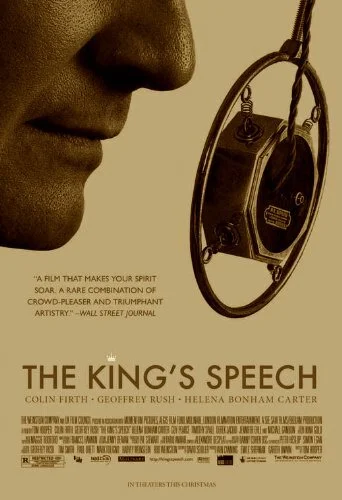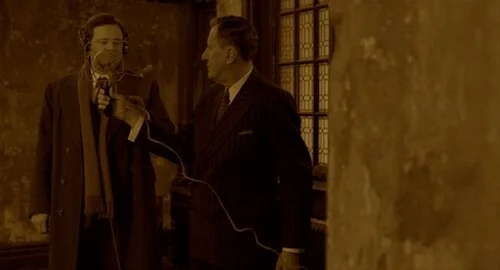The King's Speech
This review is a part of the Best Picture Project: a review of every single Academy Award winner for the Best Picture category. The King’s Speech is the eighty third Best Picture winner at the 2010 Academy Awards.
Even though the Weinstein’s Oscars reign started with Shakespeare in Love, the actual Weinstein Company dominated the Academy Awards in other categories before the next biggest win arrived in 2011. The King’s Speech was the ultimate sign that the company could command an entire year, with the film winning a number of the top prizes (Director for Tom Hooper, Actor for Colin Firth, and Original Screenplay for David Seidler). This felt like a victory for the Weinstein Company in a year that was projected to be a home run for The Social Network and David Fincher. Outside of Firth’s landslide awards season, The King’s Speech kind of just swooped in during a highly competitive year (Black Swan, 127 Hours, and other heavy hitters were also nominated for Best Picture). The Weinstein Company is incredibly tainted now, for obvious reasons, but this was around the time that their awards season pull began to tick off Oscar fanatics.
That’s too bad, because The King’s Speech isn’t all that bad. I was an undergraduate student when the film came out, and had began my film major journey. The King’s Speech seemed like a wonderful film at the time, that has either aged slightly poorly, or I have just changed my ways in ten years. For what it’s worth, The King’s Speech, albeit conventional beyond belief, is still a well made tale on an interesting subject. Making a biopic about Prince Albert would be dull and unfocused. Zooming in on his issues with stammering, and the importance of making that first call to warn England that the government has declared war on Germany (all while being crowned King George VI despite his reservations)? Now that is a story. Turning these turmoils into a buddy-buddy film about two friends working out their own problems (Albert and his speech therapist Lionel Logue) was a smart move by Seidler, who himself suffered from stammering throughout his life.
Prince Albert trying to overcome his stammer with the help of Lionel Logue.
The little tricks Hooper shoves in only add to the film’s blueprint nature, but they work. They do work indeed. I’m talking about scenes like Prince Albert being drowned out by music while recording a phrase, only for him to hear back the recording and notice his stammer completely disappeared when he couldn’t hear himself. There is true effort in The King’s Speech, despite its obvious paths, over sentimentality, and brief successes. Despite being far from the best film of 2010 (a very strong year for cinema), it’s at least good enough to watch. Hooper’s direction is usually solid, occasionally powerful (the “message” to England is hypnotizing), the cast are always on top of their game, and even the visuals are quite rich. This is another Best Picture winner held down by its success, particularly because of how dirty its win feels. Knowing how safe The King’s Speech is will be good for you in hindsight. Soaking in an honest attempt like this isn’t such a bad idea, even ten years later.
Andreas Babiolakis has a Masters degree in Film and Photography Preservation and Collections Management from Ryerson University, as well as a Bachelors degree in Cinema Studies from York University. His favourite times of year are the Criterion Collection flash sales and the annual Toronto International Film Festival.





